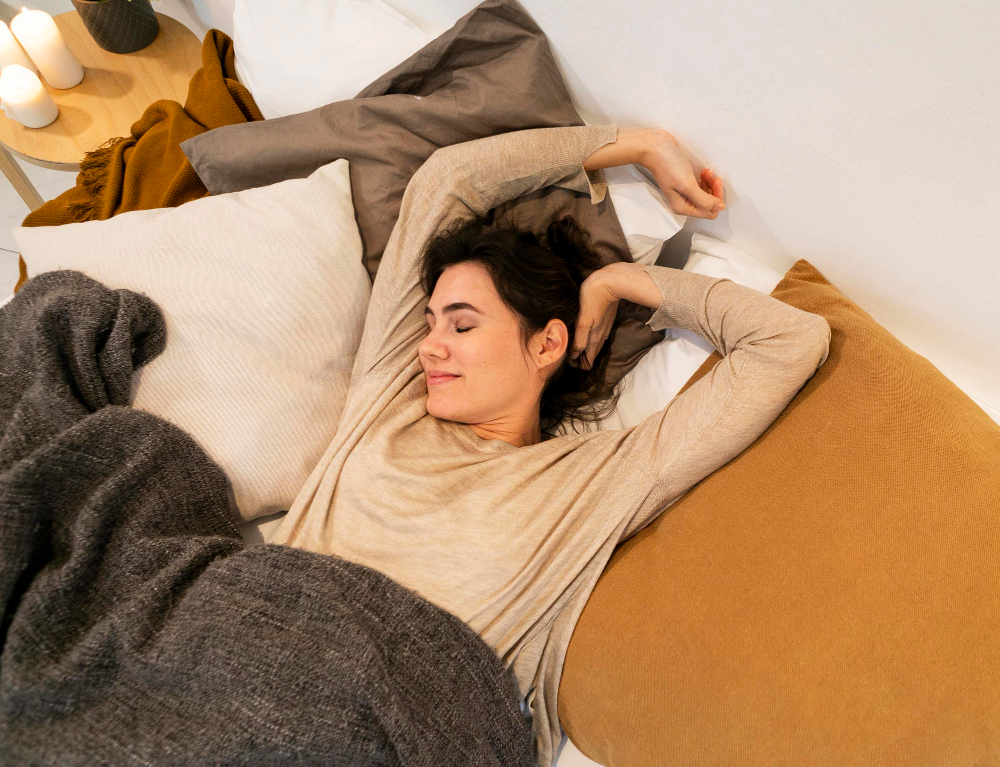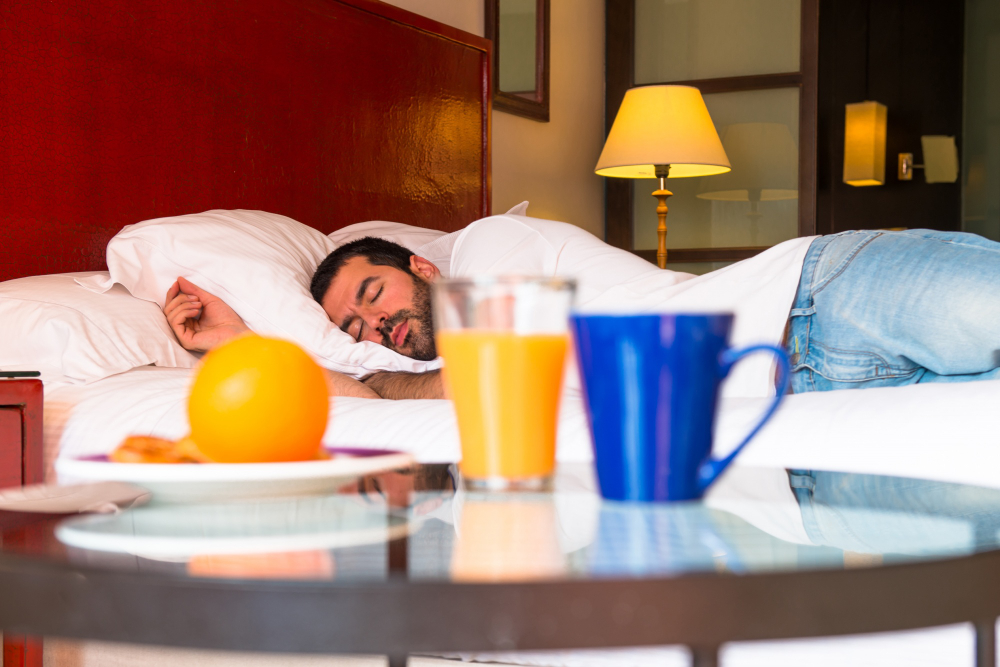
There’s no doubt that a poor night’s sleep comes with plenty of physical baggage the next day – from listless limbs to red-streaked eyes. And the side effects don’t stop there because the mental baggage is just waiting in the wings to join the show – complete with the brain fog you just can’t shake.
However, if those fun side effects aren’t enough motivation to prioritize better sleep, there’s more. A study out of UC Berkeley reveals a two-way relationship between sleep loss and becoming socially isolated. So, in addition to counterproductive physical and mental side effects, lack of sleep can also make people feel lonely and less inclined to engage with others.
Great! BRB, just grabbing our grumpy pants for this read.
Social effects of poor sleep.
The study conducted by UC Berkeley researchers (and published in the journal Nature Communications1) found that sleep-deprived subjects not only felt lonelier but also avoided close contact in much the same way as people with social anxiety. Furthermore, these lonely vibes also made the subjects less socially attractive to others – even triggering loneliness in those they encountered, thereby creating a “viral contagion of social isolation.”
However, the Berkeley scientists didn’t stop there. Yet another study2 conducted a few years later revealed that a lack of sleep can also impair people’s social conscience by withdrawing the desire and willingness to help others. These studies collectively support a growing body of evidence that inadequate sleep not only harms our mental and physical well-being “but also compromises the bonds between individuals — and even the altruistic sentiment of an entire nation.”
Despite these findings, the news about sleep loss isn’t all doom and gloom. Why? Studies like these spotlight the problem and generate meaningful conversations about healthy sleep. There has been a renewed interest in cultivating and practicing healthy sleep habits over the last few decades as the conversations around sleep hygiene, beauty sleep, and other sleep-friendly subjects continue to grow. As this happens, general society’s attitude around sleep is shifting, and the word is spreading – sleep and health go hand in hand.
Sleep matters.
Hopefully, the information revealed in these studies underscores the importance of getting quality sleep for 7-8 hours every night. Especially in light of the holiday season, which is the most social and giving time of year!
So, what can you do to improve the length and quality of your nightly slumber to avoid the viral loneliness and social suicide these researchers discovered? The best place to start is with your mattress, which is easily the most essential item in your better sleep arsenal. If your current mattress doesn’t provide enough comfort and support, it could sabotage your sleep.
However, you may be unsure how to know when to replace your mattress. After all, there’s no indicator light signaling you to “replace mattress” when the time comes. The signs your current mattress is past its prime can be subtle and almost undetectable. For example, here are the most common indicators:
- You wake up with stiffness, numbness, aches, and pains.
- You realize you got a better night’s sleep somewhere other than your bed (such as at a hotel).
- Your mattress shows signs of overuse (it sags or has tearing, ripping, holes, staining, or damage).
- You are usually tired despite getting a full night’s sleep.
- Your mattress is seven years old or older, which is about how often you should replace your mattress.
When to replace your mattress to improve sleep – and your social life.
If you answered yes to any of the items listed above, you’re likely dealing with a bad mattress past its prime, and it’s time to start shopping for a new one. (Or add to your gift wish list!) Especially since it could be secretly sabotaging your social life, right?
Fortunately, there are plenty of options available today that address a wide variety of specific sleep concerns and help you achieve quality sleep every night. If you’re unsure where to start, check out this blog post, which contains helpful tips to improve your mattress shopping and ensure you pick the option that best fits your specific sleep criteria.
Achieving adequate and restful sleep every night is essential to our physical, mental, emotional – and social – well-being. So, make 7-8 hours every night a priority this holiday season to keep your overall health merry and bright.
1 https://news.berkeley.edu/2018/08/14/sleep-viral-loneliness/
2 https://vcresearch.berkeley.edu/news/sleepless-and-selfish-lack-sleep-makes-us-less-generous



